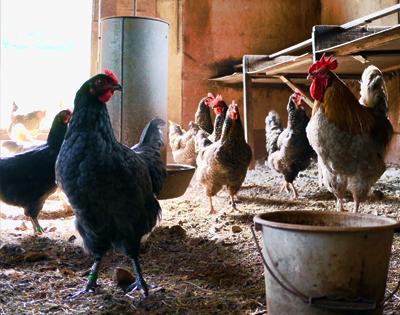
Bird Flu Prevention Zone in England and Wales
Just a few weeks into the New Year, England’s Chief Veterinary Officer has imposed a bird flu prevention zone over the whole of England. Intended to protect the UK poultry industry, following the discovery of dead wild birds infected with an H5N6-type avian flu strain, a similar bird flu protection zone was imposed in Scotland at the end of January.
Avian influenza virus, detectable using the FASTest® AIV Ag Avian Flu Diagnostic Test Kit, is spread from bird to bird via faeces, body fluids, contaminated feed, soils and water. Although there is no evidence that the current strains of avian flu have affected people in the UK, precautions should be taken to minimise close bird-human contact.
Keepers of flocks above 500 birds are required to take more stringent bio-security measures
Keepers of all types of captive birds within the prevention zone must take all practical measures to separate their birds from wild birds. DEFRA advice includes reducing access by wild birds, removing excess feed, and screening water courses with fine netting. Reducing access by people to bird enclosures, and disinfecting footwear and foot-ways is also recommended. Keepers of flocks above 500 birds are required to take more stringent bio-security measures.
Poultry keepers with flocks of more than 50 birds are already required to register their flocks even if the flock isn’t made up of just one species. Mandatory registration covers chickens and bantams, turkeys, ducks, geese, game birds such as partridges, quail and pheasants, and pigeons reared for meat. APHA (Animal and Plant Health Agency) also requires registration of more exotic bird flocks such as guinea fowl, ostriches, emus, rheas and cassowaries.
APHA Alerts Subscription Service – FREE
Registering smaller bird flocks isn’t compulsory, but DEFRA strongly recommends voluntary registration of even the smallest bird flocks and animal herds with the ‘APHA Alerts Subscription Service’.
The APHA Alerts Subscription Service is free to use for livestock keepers, veterinary professionals, wider agricultural interests, and national and local government offices and media outlets. Disease alerts and updates can be received by email, SMS text and voice messaging. APHA alerts include a range of animal health risks including foot and mouth, bluetongue, avian influenza, Newcastle Disease, swine fever and various equine diseases.
Helping curtail the spread of bird flu
While the bird flu prevention zone remains in force, even keepers of ‘backyard’ poultry flocks are advised to watch their birds for the tell tale signs of HPAI (Highly Pathogenic Avian Influenza) including swollen head, bluish skin discolouration, loss of appetite, stressed breathing and reducing egg production.
Suspicious symptoms should be reported to your vet without delay. Veterinary laboratory testing, with the FASTest® AIV Ag Avian Flu Diagnostic Test Kit, provides immediate clarification protecting your valuable birds and helping curtail the spread of bird flu among the UK poultry industry.
To find out more about our large range of veterinary diagnostic test kits visit our website: www.vetlabsupplies.co.uk or Telephone: 01798 874567

